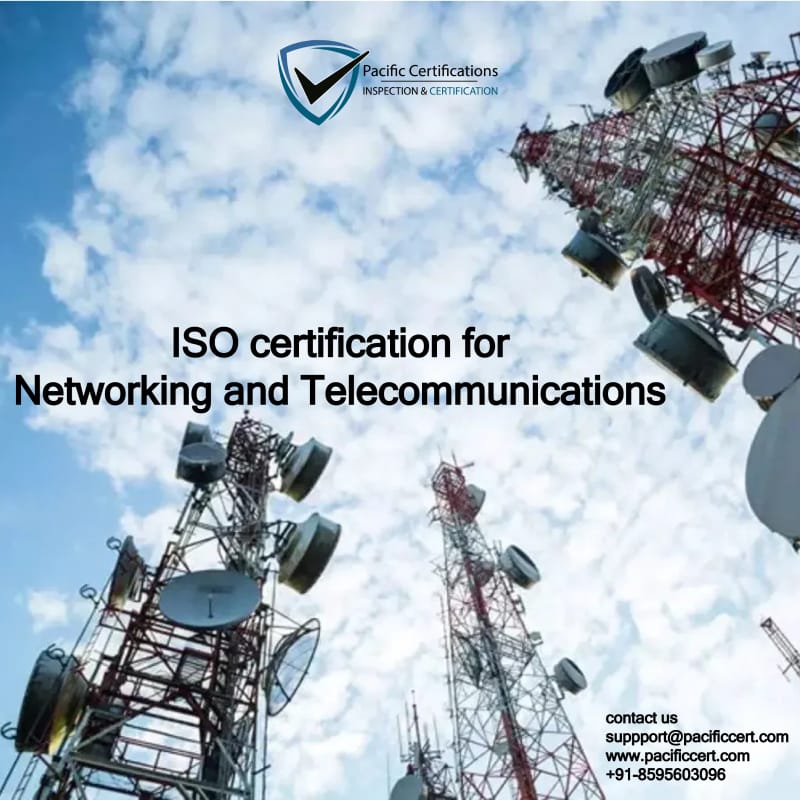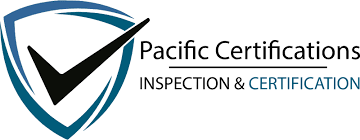ISO Certifications for Networking and Telecommunications Services, Requirements and Benefits

Introduction
The networking and telecommunications sector forms the backbone of digital communication, powering internet infrastructure, data centers, mobile networks, satellite systems, and enterprise connectivity solutions. As demand for reliable and secure communication grows, telecom providers face challenges in service continuity, information security, regulatory compliance, and customer trust.
ISO certifications provide a structured, internationally recognized framework to ensure that networking and telecom organizations maintain consistent quality, manage security risks, protect customer data, and meet environmental and operational standards. Whether offering broadband, data hosting, or 5G network services, ISO certification helps organizations improve efficiency, demonstrate compliance, and assure customers of dependable service delivery.
In telecommunications, trust is measured in milliseconds—ISO standards help ensure that every connection is secure, reliable, and consistently managed.
To explore how ISO certifications can benefit your networking and telecommunications services, or to begin the audit process, contact [email protected].
Quick Summary
ISO certifications in telecommunications help service providers achieve operational excellence through standardization, information security, and resilience. They ensure network reliability, protect sensitive data, and align telecom operations with international quality and compliance requirements.
Applicable ISO Standards for Networking and Telecommunications Industry
For networking and telecommunications services, several ISO standards are particularly relevant, below are some of the important standards:
ISO 9001:2015 Quality Management Systems
ISO 9001:2015 focuses on meeting customer expectations and delivering customer satisfaction, which is critical for companies in these industries. Implementing ISO 9001 can help networking and telecommunications services to enhance their operational efficiency and increase customer satisfaction..
ISO/IEC 27001: Information Security Management Systems
ISO 27001 provides a framework for establishing, implementing, operating, monitoring, reviewing, maintaining, and continually improving an information security management system (ISMS).
ISO 22301: Business Continuity Management Systems
This standard is pertinent for networking and telecommunications companies looking to ensure the continuity and recovery of their operations in the event of disruptions, such as natural disasters, technical failures, or cyber-attacks.
ISO/IEC 20000-1: Service Management System
This standard is designed for organizations that want to establish, implement, maintain, and continually improve a service management system (SMS). It is particularly relevant for networking and telecommunications services that provide IT and telecommunication services to their customers.
TL 9000: Quality Management System for Telecommunications
TL 9000 is a quality management system built on the foundation of ISO 9001 and tailored specifically for the telecommunications industry. It addresses supply chain and product development processes, including hardware, software, and services.
Click here to find out more applicable standards to your industry
If you need support with ISO certification for your business, please contact us at [email protected] or +91-8595603096
What are the requirements of ISO Certifications for Networking and Telecommunications Services?
To achieve ISO certification, networking and telecommunications companies must develop documented management systems that ensure compliance, resilience, and data protection across all functions. Each standard carries unique requirements, but the key expectations include:
Define the scope of certification covering network infrastructure, data centers, and customer-facing services.
Establish policies and measurable objectives for service quality, security, and environmental responsibility.
Maintain an asset inventory covering network nodes, routers, servers, and data-handling equipment.
Implement procedures for service management, network availability, and incident resolution under ISO/IEC 20000-1.
Conduct regular risk assessments to identify threats related to network outages, cyberattacks, or system failures.
Ensure secure management of data and privacy controls aligned with ISO/IEC 27001 and ISO/IEC 27701.
Develop continuity and disaster recovery plans under ISO 22301 to ensure minimal downtime.
Monitor energy use and introduce energy-saving technologies in data transmission and server operations.
Provide training for employees and contractors on safety, quality, and information security responsibilities.
Conduct periodic internal audits, management reviews, and performance evaluations to drive continual improvement.
Tip: Start with ISO/IEC 20000-1 to strengthen service management and delivery standards, then integrate ISO/IEC 27001 for information security and ISO 22301 for continuity—creating a robust management ecosystem for telecom reliability and customer trust.
What are the benefits of ISO Certifications for Networking and Telecommunications Services?
Implementing ISO standards in networking and telecommunications services provides substantial business and operational advantages:
Establishes structured service management practices to minimize downtime and improve uptime performance.
Protects customer data and critical network systems from unauthorized access and cyber threats.
Aligns with national telecom regulations, GDPR, and industry-specific requirements for lawful operation.
Maintains connectivity and communication capabilities even during natural disasters or system failures.
Improves response times, service delivery consistency, and complaint handling through standardized processes.
Increases efficiency and resource optimization by managing energy use and streamlining workflows.
Minimizes risks for field engineers, technicians, and tower maintenance teams under ISO 45001.
Reduces carbon footprint and promotes responsible environmental management through ISO 14001 and ISO 50001.
Demonstrates compliance with internationally recognized standards, strengthening reputation in global telecom networks.
Provides a solid foundation for integrating 5G, IoT, and cloud services securely and efficiently.
The global telecommunications services market is projected to exceed USD 2.1 trillion by 2030, growing at a CAGR of 5.7% (Statista, 2025). With the rise of 5G, IoT, and AI-driven networks, telecom operators face increasing scrutiny over data protection, service continuity, and regulatory compliance.
Recent studies show that over 70% of Tier-1 telecom providers are ISO/IEC 27001 certified, while ISO/IEC 20000-1 adoption has doubled since 2020 due to its alignment with ITIL service management practices. Additionally, ISO 22301 certification has become a key differentiator for telecom firms bidding for government and enterprise connectivity projects.
Sustainability is also shaping telecom operations: ISO 14001 and ISO 50001 certifications are becoming integral as companies move toward carbon-neutral infrastructure and energy-efficient data centers.
How Pacific Certifications Can Help?
Pacific Certifications, accredited by ABIS, provides impartial and globally recognized certification services for networking and telecommunications companies.
Our audit team specializes in telecom management systems, cybersecurity frameworks, and business continuity certification. We ensure full compliance with standards like ISO/IEC 20000-1, ISO/IEC 27001, ISO 22301, and ISO 45001.
We also provide accredited training programs for internal auditors, service managers, and network compliance teams to build long-term competence and system sustainability.
Contact Us
If you need support with ISO certification for your networking and telecommunications business, please contact us at [email protected] or +91-8595603096.
Author: Ashish
Read more: Pacific Blogs

